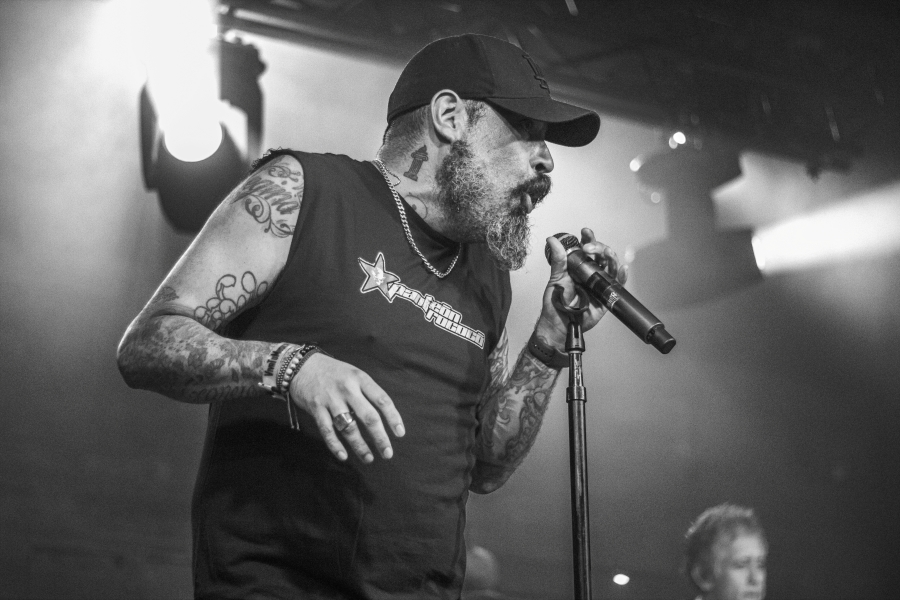Growing up, I’ve always had a complicated relationship with Ska. It’s a pretty easy genre to hate on. But like any genre, there will always be exceptions to the rule. For me, that was Fishbone, No Doubt, and Operation Ivy. These groups felt like a cut above others and gave me a better appreciation for the genre. But then I started getting into Latin American rock, Panteón Rococó specifically, and it changed everything.
The 80s and 90s saw a new wave of ska music take an interesting turn, especially in Latin America. Groups like Los Fabulosos Cadillacs, Maldita Vecindad, El Gran Silencio, and Los Estrambóticos took Ska to another level. They felt more respectful of the genre’s origins in Reggae and the rhythms that helped build the music. It also made me realize there is so much more to Ska than the basic wannabe Jamaican white boys playing Ska on 90s radio.

As one of Mexico’s most prolific rock acts, Panteón Rococó has been in the game for nearly 30 years. And let me tell you, they still put on an amazing show.
When they announced they’d once again be in Chicago, I knew I couldn’t miss them. I had seen them three times prior, and each time was a unique, rowdy experience. Their show on October 13th at Concord Music Hall only further strengthened their legacy as one of Mexico’s must-see live shows.

Accompanying Panteón Rococó was local act LaMor and Mexico City’s Out of Control Army. LaMor warmed things up by showcasing Ska in Spanish with killer riffs and immaculate vocals. Then Out of Control Army set the room ablaze with their fiery performance, complete with checkered suits, and pork pie hats. The crowd matched the group’s energy, jumping and dancing throughout the set. The opening bands had me questioning myself; Maybe I really do enjoy Ska? Especially live. Latin American Ska bands have something special to say and it’s amazing to see their energy reciprocated by a lively audience.
That notion was elevated once Panteón Rococó came out in a blaze of glory, giving the crowd a night to remember.
Despite the obvious pride in their roots, I’ve always found Panteón Rococó to be much more than a Ska band. Their influences in Cumbia and Reggae make them a lot more interesting. These influences translate well live, especially with tracks like “Dime” and “Hostilidades.” Beyond the moshing and skanking, audience members would dance to the Cumbias they played, including a cover of “Mil Horas” by Los Abuelos De La Nada.

Like many rock en español bands from that era, they’re heavily inspired by Zapatista Army of National Liberation. Their leftist politics drive their music, evident in the song “Abajo Y A La Izquierda,” getting the crowd to chant “Todos abajo abajo y ala izquierda, Que los políticos se vayan a la mierda” [Everyone down and to the right, all the politicians can go fuck themselves]. From the moment they opened with “Arreglame El Alma” to closing with “La Carencia,” the group demonstrated the might of their entire discography. Even some love was shown to their 2019 album Infiernos with the track “El Último Ska.”

Panteón Rococó took a couple of digs at their old age, mentioning how their now-fragile bodies make it tougher for them to perform.
Frontman Dr. Shenka even poked fun at his bad knee. Yes, their age is noticeable, but the audience couldn’t care any less. This is a huge draw for me in going to see rock en español bands from the 90s. Their crowds will always show out and bring the ruckus. I find Panteón Rococó sticks out from other bands in that era because of their political lyrics and a curious blend of genres. Nearing the end of Hispanic Heritage Month in the U.S., this was a pretty badass way to end the celebration.

Ska will always be a tricky one for me. I even find it hard to admit that I like it. Especially when it feels like I always have to explain myself. No matter what, I’ll always find comfort in Ska’s success in Latin America, as these artists take from the rhythms and sounds of their countries and make something beautiful. I feel much better knowing that a band like Panteón Rococó exists in relation to my admiration for Ska. Even if I want to pretend to hate it, the second they start performing I will be in their mosh pit dancing the night away.
All photos by Oscar De Leon




























